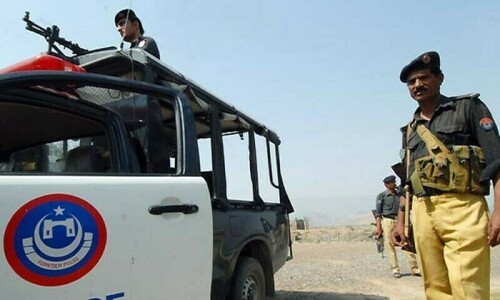KARACHI With five sons, four daughters and a wife to feed, Mohammad Rasheed has become a casualty of Pakistans descent into the sporting wilderness.
Rasheed used to make a comfortable living selling sweets and nuts to the crowds which would pack Pakistans grounds to watch Test match cricket and international field hockey.
But now the stadiums stand empty as teams refuse to tour - and tournaments are quickly shifted away from - this frontline state in the fight against Islamist militants.
The 44-year-old Rasheed, who sells maize (Channa) and nuts from a small tray was a common sight at most Pakistani stadiums.
Crowds sought him out as much for his rotund figure and good humour as his collection of dry fruits.
Cricket and hockey have been Rasheeds passion as well as his livelihood.
In between selling his goods on the terraces, hed catch a glimpse of his favourite players - two joys for the price of one.
'Cricket is my first love,' said Rasheed. 'I have sold Channa and Phulli (maize and nuts) at every stadium, be it cricket ground, hockey or football arena. Id watch my favourite players and earn good profits.'
But the March 3 attacks on the Sri Lankan cricket team in Lahore have put paid to any immediate hopes of Pakistan hosting international sport in the immediate future.
The gun and grenade attack wounded seven members of the Sri Lankan team, along with their assistant coach. Eight Pakistanis were killed.
On Wednesday, Pakistan meet Australia on neutral territory - playing the first of five one-day matches and Twenty20 in Dubai and Abu Dhabi.
International teams have classified Pakistan a no-go zone ever since the September 11, 2001 attacks on the United States, which unleashed the so-called war on terror in neighbouring Afghanistan.
India refused permission for its cricket team to tour Pakistan following a 60-hour siege siege on Mumbai last November, which New Delhi blamed on militants based across the border in its nuclear-armed rival.
The Indian cancellation cost the Pakistan Cricket Board (PCB) 40 million dollars (three billion rupees) in lost revenue. Relocating this weeks series against Australia cost the would-be hosts another two million dollars.
New Zealand has hinted it will not tour Pakistan later this year and last Friday the International Cricket Council stripped the country of its right to host their share of the 2011 World Cup alongside Bangladesh, India and Sri Lanka.
It all adds up to a bleak future for hawkers like Rasheed.
'I can afford a train ticket to go to cities in Pakistan, but who will give me a air ticket to go abroad?,' he asks.
'I love Pakistan. I love my team and I want my team to always do well.'
Its a bitter pill to swallow that he couldnt make the Sri Lanka Test in Lahore because he was unwell. It might have been his last chance.
Mohammed Asif is another familiar face at cricket stadiums, assigned to operate the official clock above the scoreboard.
Unlike Rasheed, Asif works for a luxury watchmaker and hopes to find work in Dubai and Abu Dhabi.
'I will lose a good amount which I used to get when the international season started in Pakistan,' said Asif.
Bashir Khan works for ground advertisers and used to earn around 400,000 rupees (nearly 5,000 dollars) every season.
'Our stadiums are now without cricket and it will hit people like me very hard,' said Khan.
For now the hawkers are putting their faith in the PCB, doing its best to woo teams back to Pakistan.
'I will be there at the stadiums again. Things will get better, Im sure,' said Rasheed.











































Dear visitor, the comments section is undergoing an overhaul and will return soon.